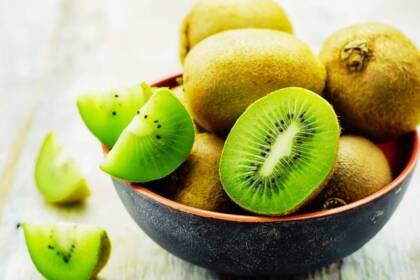Bitter flavors get a bad rap. We often recoil from bitter tastes and opt for sugary sweet flavors instead. However, science shows that bitter foods offer a wide array of health benefits. Embracing bitter flavors more often can boost your nutrition and overall health.
What Makes Foods Taste Bitter?
Bitterness comes from natural compounds called phytonutrients. These are plant chemicals that help protect plants from threats like pests, fungi, and UV radiation damage. For us, these phytonutrients also provide powerful health benefits. Key bitter phytonutrients include:
- Flavonoids – Found in cacao, coffee, and citrus peel. Provide antioxidant, anti-inflammatory, and anticancer effects.
- Terpenes – Found in hops, basil, and lemongrass. Have antioxidant and anti-inflammatory properties.
- Glucosinolates – Found in cruciferous veggies like broccoli and kale. Help fight cancer and support detoxification.
- Polyphenols – Found in green tea, red wine, and dark chocolate. Packed with antioxidants to reduce cellular damage.
The Benefits of Bitter Foods
Here’s an overview of the many perks you can gain by eating more bitter foods:
Supports Detoxification
Bitter compounds trigger the release of bile from your gallbladder and increase bile flow. Bile helps digest fats, but also acts like a detergent to remove toxins, waste, heavy metals, and other undesirable compounds from your body. Bitters like dandelion, milk thistle, and artichoke can all aid detoxification.
Boosts Digestion
Bitters stimulate digestion by increasing the release of digestive enzymes, stomach acid, and bile. This improves nutrient absorption and may ease digestive issues like bloating, gas, and indigestion. Bitters taken before a meal act as a digestive tonic.
Aids Weight Loss
Bitter flavors naturally curb sweet cravings. Studies show people desire and consume fewer sugary foods after tasting bitterness. Bitters also improve digestion and promote healthy bile flow, which supports weight loss. Certain bitter compounds may also directly boost metabolism.
Balances Blood Sugar
Animal and human studies reveal that bitter melon, a tropical fruit, contains compounds that reduce blood sugar levels and support insulin secretion and function. Bitter melon shows promise for managing diabetes and high blood sugar.
Protects Heart Health
Bitter flavonoids, polyphenols, and terpenes deliver antioxidant and anti-inflammatory effects that help protect blood vessels and reduce cardiovascular disease risk. Compounds in coffee, dark chocolate, and greens may improve cholesterol and blood pressure levels too.
Supports Liver Health
Your liver uses bile to filter toxins out of your blood. Bitters boost bile flow, which takes stress off your liver and keeps it functioning optimally. Research shows milk thistle, an herbal bitter, protects the liver from damage, viruses, and toxins like alcohol.
Has Anti-Cancer Activity
Numerous bitter compounds exhibit anti-cancer effects in studies. The phytonutrients in cruciferous veggies, turmeric, berries, and green tea show promise for reducing cancer growth and spread. Their antioxidant and anti-inflammatory properties are key. More human research is needed, but the prospects are good.
May Boost Immunity
By reducing inflammation and supplying antioxidant compounds, bitter foods can enhance immune function and protect against infections and disease. Animal research finds bitter melon has antiviral and antimicrobial effects against certain infections too.
Can Improve Skin Health
Antioxidant-rich bitter foods help combat skin damage from environmental factors like UV exposure and pollution. Some bitters contain compounds that inhibit skin inflammation, cell mutation, and tumor formation. Herbal bitters like milk thistle, turmeric, and aloe vera juice help enhance skin quality and appearance when taken internally.
Promotes Mental Health
Via anti-inflammatory effects and physiology changes in the gut-brain axis, bitter foods may reduce risk for anxiety, depression, and cognitive decline. Compounds in coffee, cocoa, and curcumin boost the feel-good neurotransmitter serotonin. This can elevate mood and improve stress resilience.
How to Eat More Bitter Foods
Don’t limit yourself to garnishing cocktails with bitters! You can easily work more bitterness into meals and snacks:
- Start your day with a cup of green tea, grapefruit, or bitter coffee.
- Toss arugula, radicchio, dandelion, or chicory greens into salads.
- Roast cruciferous veggies like Brussels sprouts and broccoli until lightly charred.
- Add chili peppers, turmeric, or ginger to stir fries, soups, and curries.
- Bake or grill eggplant, asparagus, celery root, or cabbage wedges.
- Blend greens like kale or parsley into smoothies.
- Snack on walnuts, pecans, unsweetened baking chocolate, or grapefruit.
- Use olive oil and vinegar or fresh lemon juice for dressings and marinades.
Go easy at first if you’re new to bitter flavors. Gradually ramp up the intensity and volume of bitter foods you enjoy. Be adventurous and don’t be afraid to develop a taste for bitterness – your health will thank you.
Potential Downsides of Bitter Foods
Bitter compounds act as natural pesticides, so some may be toxic in very high doses. But levels found naturally in foods and herbs are safe for human consumption.
Some people have scent-related genetic traits that make certain bitters taste overly intense or unpleasant. As with any new food, watch for possible allergies or intolerances.
Most studies show minimal side effects from bitter supplements like milk thistle and turmeric extracts. However, turmeric may increase gallbladder contractions, so individuals with gallstones should avoid turmeric.
And patients taking diabetes medications may need dose adjustments if also taking bitter melon for blood sugar control.
Conclusion
Current research reveals that incorporating more bitter flavors into your diet can offer a wide range of health benefits. From potential cancer protection to better blood sugar regulation, bitters deserve a spot on your plate.
Start slowly and find ways to sneak bitterness into more meals to harness these advantages. Just a small amount of bitterness can make a big impact on your overall wellbeing.
References:
- https://lakesidenaturalmedicine.com/blog/3-top-herbs-for-liver-and-detox/
- https://www.ncbi.nlm.nih.gov/pmc/articles/PMC4446506/
- https://www.ncbi.nlm.nih.gov/pmc/articles/PMC8072924/
- https://www.ncbi.nlm.nih.gov/pmc/articles/PMC4027280/
- https://www.ncbi.nlm.nih.gov/pmc/articles/PMC5465813/
- https://www.mindbodygreen.com/articles/cleanse-your-liver-naturally
- https://www.ncbi.nlm.nih.gov/pmc/articles/PMC7367609/
- https://www.ncbi.nlm.nih.gov/pmc/articles/PMC5075620/












